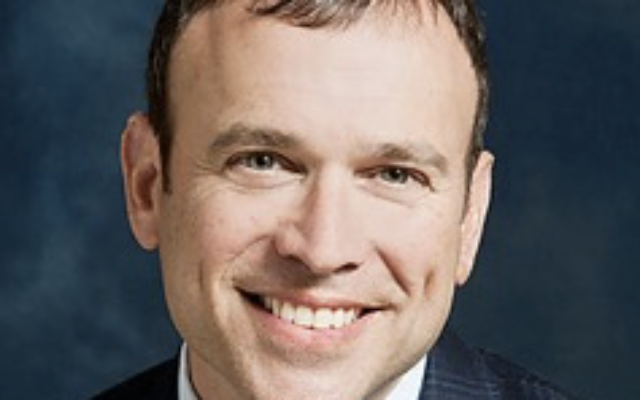Leibowitz Shares Secrets to a Good Night’s Sleep
In late May, Leibowitz spoke to the members of a monthly conversational salon called SaySo.

Feeling grumpy? Having a hard time thinking clearly? How about hypertension, diabetes, depression, struggles with weight? All of these could be byproducts of not getting enough sleep.
So says Dr. Scott Leibowitz, a sleep expert at the Laureate Group in Sandy Springs. In late May, Leibowitz spoke to the members of a monthly conversational salon called SaySo. Since 2003, this group of women has heard from expert panelists as varied as the late U.S. Congressman John Lewis, the late Sandy Springs Mayor Eva Galambos and Andre Dickens, the current mayor of Atlanta.
“There is never a shortage of guest speakers, even pooling from our own members, ideas, topical issues or venues to visit,” said Eve Mannes, who — along with Dot Blum and Judy Mozen — is one of the founders of the organization, which is now in its 18th year. “Sleep is one topic that seems to be a commodity that one needs or must have.”
Mannes won’t get any argument from Leibowitz on that front. The Atlanta native said his business has been booming in the last few years, but, surprisingly, not due to the COVID-19 pandemic. “Eighty percent of the sleep disorders come in groups,” he said, which include a “variety of other problems. Sleep apnea is a big component of what I see, but my approach is more comprehensive.”
Leibowitz speaks in terms of sleep hygiene, or “making sure you don’t do dumb things that only prevent sleep. People do a lot of things they shouldn’t like watch TV in bed. Beds should only be used for sleep and sex.” He recommends that people choose a dark, cool environment in which to sleep, stay off back-lit technology devices and avoid coffee before going to sleep.
“According to the American Academy of Sleep Medicine, sleep hygiene doesn’t treat insomnia. A patient needs to see a sleep specialist,” he said.
“Each person is individual, but what I tell patients many times a day is that sleep is a biological process. Sleep is covered by the central nervous system. The starting point is focused on the biological aspects of sleep.”
The consequences of sleep loss can be measured, Leibowitz said, and most adults should be getting six to nine hours a night, with eight being the average.
“All aspects of an individual potentially impact sleep, and sleep potentially impacts all aspects of an individual,” as the sleep expert writes on his website.
Lack of sleep can also lead to cardiovascular, cognitive and mood regulation issues. “Insufficient sleep affects one’s emotions. A person is more likely to have anxiety and depression. Lack of sleep can also increase the chances of dementia,” Leibowitz says.
“How do you know you’re getting enough sleep? If you sleep more on the weekend, then chances are you are not sleeping enough during the week.”
Although Leibowitz said he is a “big fan of naps,” he also cautioned that they have the potential to impact sleep at night. “Naps are snacks, not meals,” he said, suggesting that they be limited to just 20 minutes.
These days, Leibowitz says that he gets most of his referrals from psychiatrists and cardiologists. Although his patients range in age from 16 to senior, the majority are older than 70. “Most people I see have chronic disorders and I see them for long periods of time,” he said.
On the bright side, Leibowitz says that there’s been a noticeable uptick in awareness of sleep hygiene. “Sleep is now part of the conversation.”
- Professional
- Local
- Jan Jaben-Eilon
- Dr. Scott Leibowitz
- Laureate Group
- SaySo
- U.S. Congressman John Lewis
- Springs Mayor Eva Galambos
- Atlanta Mayor Andre Dickens
- Eve Mannes
- Dot Blum
- Judy Mozen
- sleep hygiene
- According to the American Academy of Sleep Medicine
- insomnia
- central nervous system
- Dementia
- naps



comments